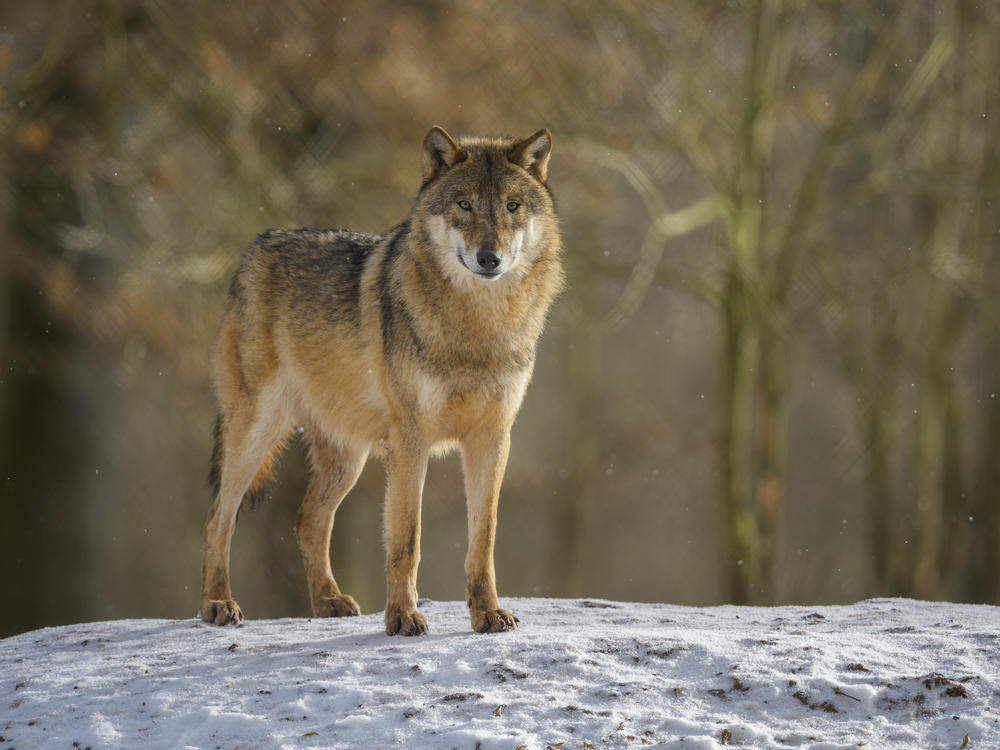Section Branding
Header Content
Why wolves are thriving in this radioactive zone
Primary Content
In 1986 the Chernobyl nuclear power plant exploded, releasing radioactive material into northern Ukraine and Belarus. It was the most serious nuclear accident in history. Over one hundred thousand people were evacuated from the surrounding area because of the health risks radioactive waste poses to humans. Most people have not returned.
Unlike humans, gray wolves never left.
The local population has grown over the years. It's seven times denser than populations in protected lands elsewhere in Belarus. This fact has led scientists to wonder whether the wolves are genetically either resistant or resilient to cancer — or if the wolves are simply thriving because humans aren't interfering with them.
This episode, researchers Shane Campbell-Staton and Cara Love talk through what might be causing this population boom. Plus, why researchers in the field of human cancer are eager to collaborate with them.
Want to hear about other ways humans are impacting the planet? Email us at shortwave@npr.org.
Listen to Short Wave on Spotify, Apple Podcasts and Google Podcasts.
Listen to every episode of Short Wave sponsor-free and support our work at NPR by signing up for Short Wave+ at plus.npr.org/shortwave
This episode was produced by Margaret Cirino and edited by Rebecca Ramirez. It was fact-checked by Brit Hanson. Josh Newell was the audio engineer.

